Filter by
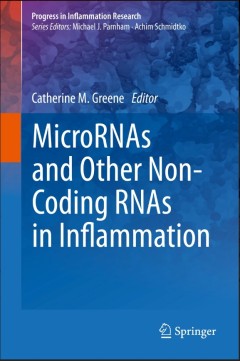
MicroRNAs and Other Non-Coding RNAs in Inflammation
The book serves as a comprehensive resource for scientists and clinicians studying the role of non-coding RNAs in inflammation (viral infections, wound inflammation), human inflammatory diseases (i.e. rheumatoid arthritis, Crohn’s disease, diabetes) and innate immunity. It provides a universal reference work comprising both basic and specialized information. Given that ncRNAs represent new th…
- Edition
- 1
- ISBN/ISSN
- 978-3-319-13689-9
- Collation
- X
- Series Title
- Progress in Inflammation Research
- Call Number
- -
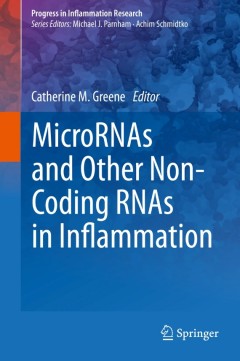
MicroRNAs and Other Non-Coding RNAs in Inflammation
The book serves as a comprehensive resource for scientists and clinicians studying the role of non-coding RNAs in inflammation (viral infections, wound inflammation), human inflammatory diseases (i.e. rheumatoid arthritis, Crohn’s disease, diabetes) and innate immunity. It provides a universal reference work comprising both basic and specialized information. Given that ncRNAs represent new th…
- Edition
- 1
- ISBN/ISSN
- 978-3-319-13688-2
- Collation
- X, 237
- Series Title
- Progress in Inflammation Research
- Call Number
- -
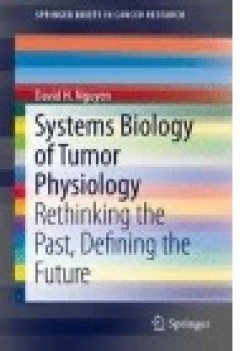
Systems Biology of Tumor Physiology
This exciting SpringerBrief presents evidence for new ideas that will challenge several theories of how cancer biology is understood. Cancer biology has undergone several intellectual revolutions in the past 50 years. A mutation-centric view of cancer has given way to the tumor microenvironment view. Reductionistic studies of one gene at a time have given way to systems biology approaches that …
- Edition
- -
- ISBN/ISSN
- 978-3-319-25601-6
- Collation
- XIII, 56
- Series Title
- SpringerBriefs in Cancer Research
- Call Number
- -
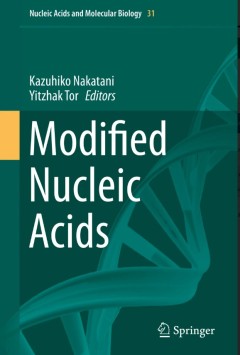
Modified Nucleic Acids
This book spans diverse aspects of modified nucleic acids, from chemical synthesis and spectroscopy to in vivo applications, and highlights studies on chemical modifications of the backbone and nucleobases. Topics discussed include fluorescent pyrimidine and purine analogs, enzymatic approaches to the preparation of modified nucleic acids, emission and electron paramagnetic resonance (EPR) spec…
- Edition
- 1
- ISBN/ISSN
- 1869-2486
- Collation
- X, 276
- Series Title
- Nucleic Acids and Molecular Biology
- Call Number
- -
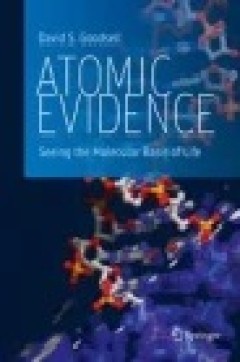
Atomic Evidence : Seeing the Molecular Basis of Life
This book will take an evidence-based approach to current knowledge about biomolecules and their place in our lives, inviting readers to explore how we know what we know, and how current gaps in knowledge may influence the way we approach the information. Biomolecular science is increasingly important in our everyday life, influencing the choices we make about our diet, our health, and our well…
- Edition
- -
- ISBN/ISSN
- 978-3-319-32510-1
- Collation
- VII, 182
- Series Title
- -
- Call Number
- 611

Atlas of Human Pluripotent Stem Cells in Culture
This lavishly-illustrated, authoritative atlas explores the intricate art of culturing human pluripotent stem cells. Twelve chapters – containing more than 280 color illustrations – cover a variety of topics in pluripotent stem cell culturing including mouse and human fibroblasts, human embryonic stem cells and induced pluripotent stem cells, characteristic staining patterns, and abnormal c…
- Edition
- -
- ISBN/ISSN
- 978-1-4899-7507-2
- Collation
- XV, 206
- Series Title
- -
- Call Number
- 611

Essentials of Single-Cell Analysis Concepts, Applications and Future Prospects
This book provides an overview of single-cell isolation, separation, injection, lysis and dynamics analysis as well as a study of their heterogeneity using different miniaturized devices. As an important part of single-cell analysis, different techniques including electroporation, microinjection, optical trapping, optoporation, rapid electrokinetic patterning and optoelectronic tweezers are des…
- Edition
- -
- ISBN/ISSN
- 978-3-662-49118-8
- Collation
- 127 b/w illustrations, 15 illustrations in colour
- Series Title
- -
- Call Number
- -

Essays on the History of Respiratory Physiology
This book consists of 23 essays about prominent people and events in the history of respiratory physiology. It provides a first-hand chronicle of the advancements made in respiratory physiology starting with Galen and the beginnings of Western physiology. The volume covers every aspect of the evolution of this important area of knowledge: pulmonary circulation, Boyle’s Law, pulmonary capillar…
- Edition
- -
- ISBN/ISSN
- 978-1-4939-2362-5
- Collation
- 115 b/w illustrations, 14 illustrations in colour
- Series Title
- -
- Call Number
- -
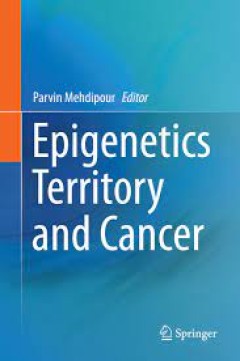
Epigenetics Territory and Cancer
This book explores epigenetic strategies, bridging fundamental cancer epigenetics, different paradigms in tumor genetics and translational understanding for both the clinic and improved lifestyles. The work provides target-based insights for treating different types of cancers and presents research on evolutionary epigenetics, introducing ‘Medical Epi- Anthropology’ and ‘Cancer Epi-Anthro…
- Edition
- -
- ISBN/ISSN
- 978-94-017-9639-2
- Collation
- 43 b/w illustrations, 53 illustrations in colour
- Series Title
- -
- Call Number
- -
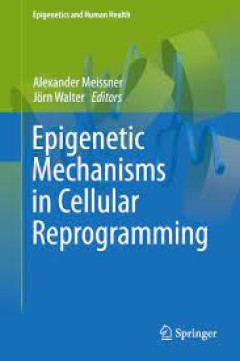
Epigenetic Mechanisms in Cellular Reprogramming
The ability of a single genome to give rise to hundreds of functionally distinct cell type programs is in itself remarkable. Pioneering studies over the past few decades have demonstrated that this plasticity is retained throughout development, a phenomenon of epigenetic programming and reprogramming that remains one of the most fascinating areas of modern biology, with major relevance to human…
- Edition
- -
- ISBN/ISSN
- 978-3-642-31974-7
- Collation
- 1 b/w illustrations, 19 illustrations in colour
- Series Title
- -
- Call Number
- -
 Computer Science, Information & General Works
Computer Science, Information & General Works  Philosophy & Psychology
Philosophy & Psychology  Religion
Religion  Social Sciences
Social Sciences  Language
Language  Pure Science
Pure Science  Applied Sciences
Applied Sciences  Art & Recreation
Art & Recreation  Literature
Literature  History & Geography
History & Geography